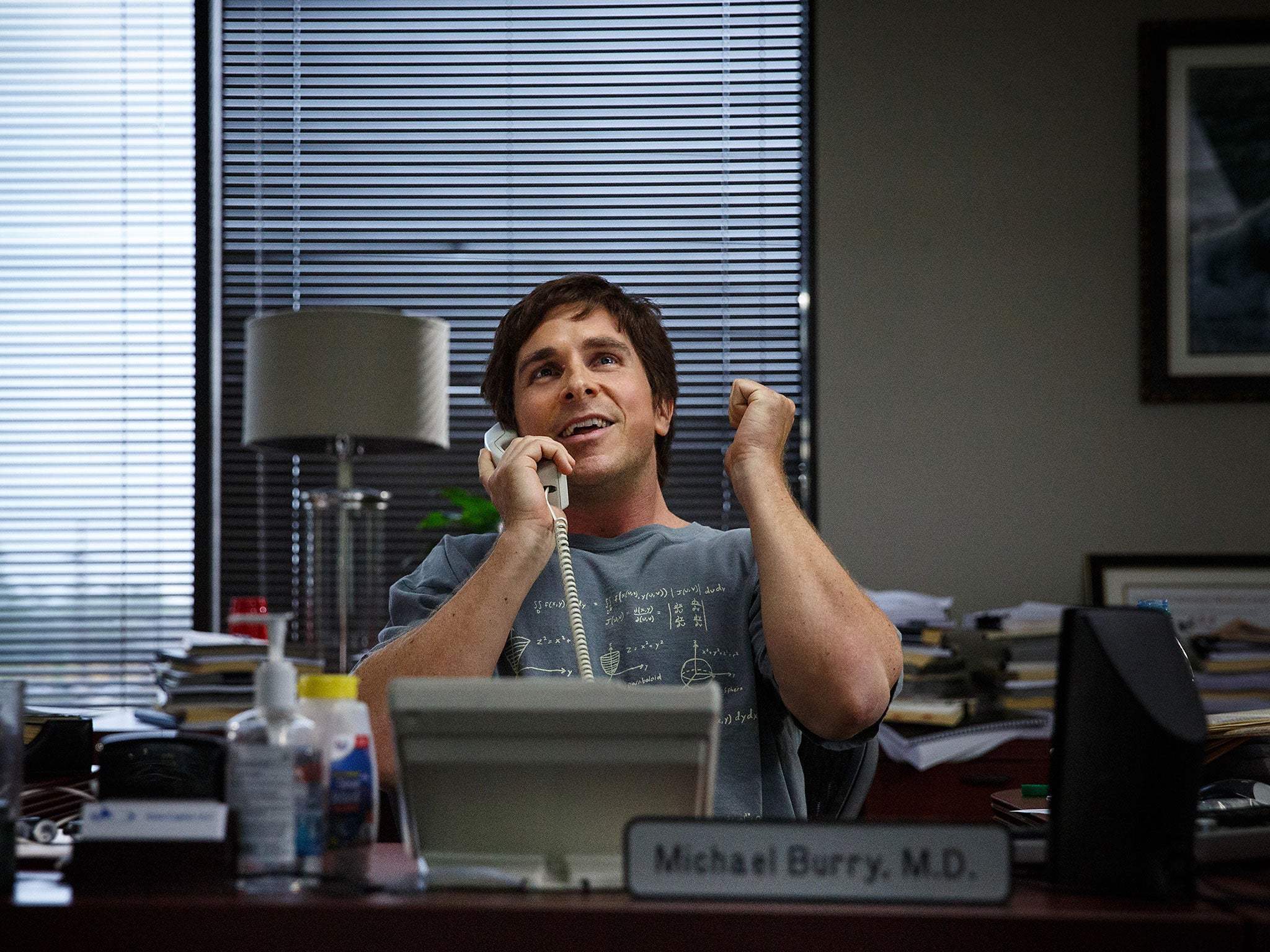Why The Big Short should win the Oscar for Best Picture - and the reason that it won't
The nominated film exposed the lies we've swallowed about the global banking crisis

Your support helps us to tell the story
From reproductive rights to climate change to Big Tech, The Independent is on the ground when the story is developing. Whether it's investigating the financials of Elon Musk's pro-Trump PAC or producing our latest documentary, 'The A Word', which shines a light on the American women fighting for reproductive rights, we know how important it is to parse out the facts from the messaging.
At such a critical moment in US history, we need reporters on the ground. Your donation allows us to keep sending journalists to speak to both sides of the story.
The Independent is trusted by Americans across the entire political spectrum. And unlike many other quality news outlets, we choose not to lock Americans out of our reporting and analysis with paywalls. We believe quality journalism should be available to everyone, paid for by those who can afford it.
Your support makes all the difference.The Revenant would appear to be a shoo-in to sweep the Oscars this weekend. It certainly would be a worthy winner, with its visual flair and sweeping grandeur. And if Leonardo fails to finally get his mitts on an Oscar after that performance of heroic endurance then he is may make use of his cinematic exploits by running off into the mountains to begin a new life as a hermetic recluse.
Assuming that we are prepared to take that risk, then the Best Picture Oscar should be awarded to The Big Short. In terms of significance, none of the contenders can match it pound for pound.
Adapted from financial writer Michael Lewis’ non-fiction book of the same name, The Big Short is the film of our times. It tells the story of the 2007-8 financial crash from the perspective of a group of traders and hedge funders, who figure out that there is going to be a cataclysmic crash triggered by the subprime housing market months before anyone else does.
So what do they do? Like any trader worth their salt, they end up making lots of money by betting on the collapse of the market, or “going short” to use the technical parlance.
The success of the film lies in taking a subject as dry as economics and not only demystifying it, but delivering it as pure cinematic pleasure. Sure, getting Margot Robbie to explain mortgage-backed securities while having a bubble bath and sipping champagne didn’t hurt. But, though the film is remarkably funny and entertaining, ultimately the joke is on us. It’s the bankers, who have the last laugh.
No spoiler alerts here. Just like Titanic, we all know that this film is heading for a massive iceberg. The Big Short does have a go at an alternative, happy ending in which there is proper reform of the banking sector, the big banks are broken up and hundreds of bankers imprisoned etc. After a few seconds of pleasant fantasy, we are returned back to reality with a bump.
The big lie at the heart of modern Britain is the Conservative contention that the economic mess was caused by Labour overspending rather than the global financial crisis. Even the IMF has dismissed this absurd concept and you will struggle to find a single mainstream economist to support this view. Which is why watching The Big Short will make your blood boil. Virtually every scene is a reminder of the fatuous lie that has been foisted upon us and unquestioningly swallowed.
Mid-way through, I thought the film might pull its punches and present the behaviour of the banks as simply stupid. Fortunately it goes the whole hog: it shows that they knew all along what they were up to, and that ultimately they would be bailed out for it. It even warns us that we are headed for another seismic crash. As Christian Bales’ character, Dr Mike Burry, eventually concludes, it might just be possible that the entire system is fraudulent.
Such a conclusion offers up a radical critique of neoliberal economics and by extension virtually endorses an anti-capitalist stance. At one point, The Big Short quotes an overheard snippet of conversation: “Truth is like poetry and most people fucking hate poetry”.
The big question posed by The Big Short is whether the Academy has the courage to reward this film for speaking truth to power.
Youssef El-Gingihy is a doctor and the author of How to Dismantle the NHS in 10 Easy Steps, published by Zero books
Join our commenting forum
Join thought-provoking conversations, follow other Independent readers and see their replies
Comments